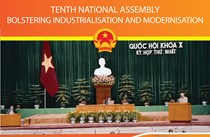
The tenth National Assembly lasted from 1997 to 2002 and organised eleven sessions.
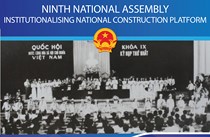
The ninth National Assembly lasted from 1992 to 1997 and organised eleven sessions.
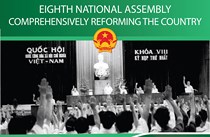
The eighth National Assembly lasted from 1987 to 1992, during which the 1992 Constitution was adopted.
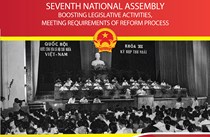
The seventh National Assembly lasted from 1981-1987 and organised twelve sessions.
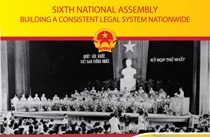
The sixth National Assembly lasted from 1976 - 1981. It adopted the 1980 Consitution, opening a new development stage of Vietnam.
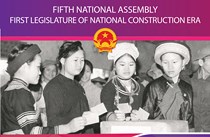
The fifth National Assembly lasted from 1975 - 1976. It included 424 deputies.
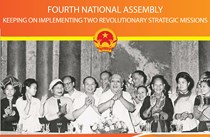
The fourth National Assembly lasted from 1971-1975 and organised five sessions.
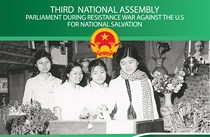
The third National Assembly lasted from 1964-1971 and organised seven sessions.
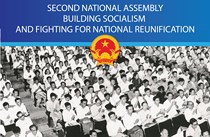
The second National Assembly lasted from 1960-1964 and organised eight sessions.
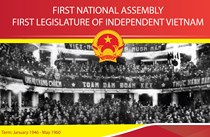
On January 6, 1946, the first election to the National Assembly, a constitutional National Assembly of Vietnam, was held nationwide.
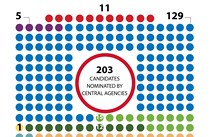
Of 868 candidates, who will run for 500 seats in the 15th National Assembly, 203 are nominated by central agencies, according to the National Election Council.
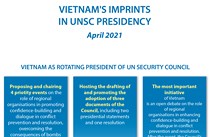
Vietnam outstandingly performed its role as the United Nations Security Council President in April, significantly contributing to realising the foreign policy set by the 13th National Party Congress.
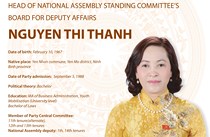
Member of the 13th Party Central Committee Nguyen Thi Thanh was appointed Head of the National Assembly Standing Committee’s Board for Deputy Affairs at the 11th session of the 14th legislature.
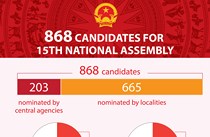
The National Election Council (NEC) has announced the official list of 868 candidates who will run for 500 seats in the 15th National Assembly.
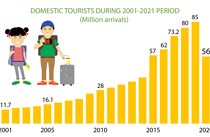
The domestic market is now regarded as the primary driver for the recovery of Vietnam’s tourism industry from the crushing impact of the Covid-19 pandemic.

Some 90km south of Hanoi, Ninh Binh province boasts many famous destinations, including Trang An Landscape Complex, a UNESCO-recognised heritage site; Tam Coc, nicknamed “Ha Long Bay on Land”; Cuc Phuong National Park; and Van Long Wetlands Nature Reserve.
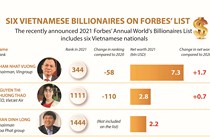
The recently announced 2021 Forbes’ Annual World's Billionaires List includes six Vietnamese nationals.
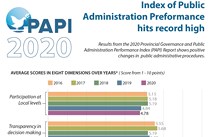
Results from the 2020 Provincial Governance and Public Administration Performance Index (PAPI) Report shows positive changes in public administrative procedures.
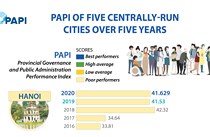
PAPI is a flagship governance program initiated by the UNDP in Vietnam since 2009. PAPI measures and benchmarks citizens’ experiences and perception on the performance and quality of policy implementation and services delivery of all 63 provincial governments in Vietnam to advocate for effective and responsive governance. Can Tho leads other centrally-run cities in PAPI in 2020.
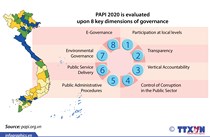
The northern province of Quang Ninh was ranked top in the 2020 PAPI report, which offers an overview of provinces’ performance through measuring the satisfaction of their citizens, with an aggregate dimensional performance score of 48.881.